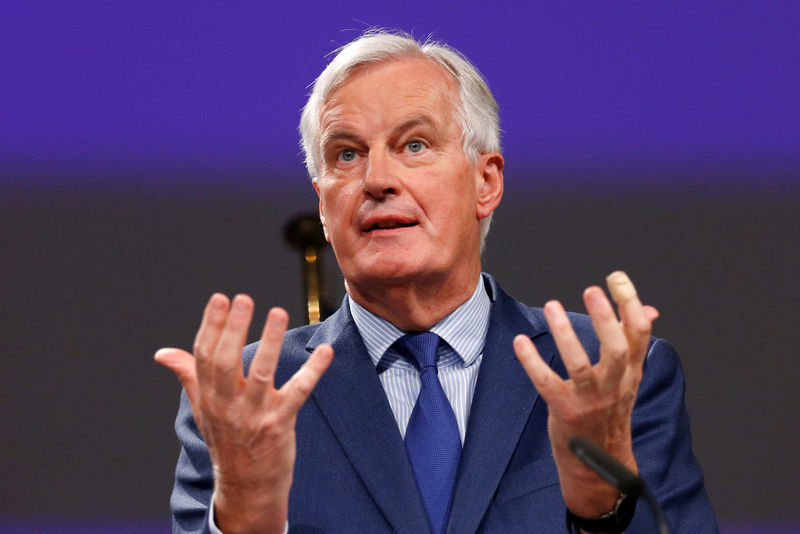ROME (Reuters) - Britain's choice of whether to stick to the "European model" or strip away regulation after it leaves the EU will determine the shape of a future trade deal with the bloc, the EU's chief Brexit negotiator Michel Barnier said on Thursday.
Barnier's remarks were a response to a call by U.S. Commerce Secretary Wilbur Ross, who said on Nov 6 in London that a Brexit deal between Britain and the European Union should be in the commercial interests of the United States.
Ross also said London should not to give in to the EU’s "highly protectionist" trade stance.
"When I hear the U.S. Commerce Secretary Wilbur Ross in London call on the British to diverge from Europe to better converge with others – towards less regulation, environmental, health, food and no doubt also financial, fiscal and labour regulation – I have to wonder," Barnier said in a speech.
"The United Kingdom has chosen to leave the European Union. Does it also want to distance itself from the European model? That's another question," Barnier said.
"It is up to the British to tell us whether they still adhere to the European model. Their answer is important because it sets the direction for the discussion on our future partnership and the conditions of its ratification," he said.
Barnier will meet his British counterpart David Davis on Friday in Brussels at the next round of EU-Britain divorce talks. The talks aim to settle how much money Britain will owe the EU on exit, establish the rights of British citizens in Europe and EU citizens in Britain, and resolve issues around the future UK-EU land border in Northern Ireland.
Barnier said in the speech that time was running out to reach a deal before EU leaders meet on Dec 14th to decide if sufficient progress had been made on the divorce issues to move on to the second phase of talks, on the future relationship.
London is keen to start these talks as soon as possible because of pressure from businesses based in Britain to quickly spell out trade terms that will apply when Britain leaves the EU, now set to take place on March 29, 2019.

"Time is pressing. The October European Council wanted to keep up the momentum of the talks and I am working in this spirit," Barnier said, referring to a summit of EU leaders last month. "But we are reaching the time for real clarity."